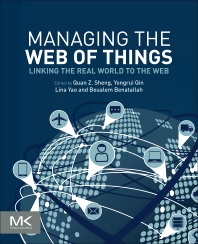Books in Parallel and distributed computing
Books in Parallel and distributed computing
- 2nd Edition
- March 1, 2026
- Rajkumar Buyya + 4 more
- English
- Paperback9 7 8 0 4 4 3 4 0 4 3 5 1
- eBook9 7 8 0 4 4 3 4 0 4 3 6 8

Mastering Cloud Computing
- 2nd Edition
- September 19, 2024
- Thomas Sterling + 2 more
- English
- Paperback9 7 8 0 1 2 8 2 3 0 3 5 0
- eBook9 7 8 0 3 2 3 9 0 2 1 2 0

High Performance Computing
- 1st Edition
- August 20, 2024
- Yong Wang
- English
- Paperback9 7 8 0 4 4 3 3 3 0 6 8 1
- eBook9 7 8 0 4 4 3 3 3 0 6 9 8

Truly Concurrent Process Algebra With Localities
- 2nd Edition
- February 9, 2022
- Gerassimos Barlas
- English
- Paperback9 7 8 0 1 2 8 1 4 1 2 0 5
- eBook9 7 8 0 1 2 8 1 4 1 2 1 2

Multicore and GPU Programming
- 2nd Edition
- August 27, 2021
- Peter Pacheco + 1 more
- English
- Paperback9 7 8 0 1 2 8 0 4 6 0 5 0
- eBook9 7 8 0 1 2 8 0 4 6 1 8 0

An Introduction to Parallel Programming
- 2nd Edition
- September 8, 2020
- Maurice Herlihy + 3 more
- English
- Paperback9 7 8 0 1 2 4 1 5 9 5 0 1
- eBook9 7 8 0 1 2 3 9 1 4 0 6 4

The Art of Multiprocessor Programming
- 1st Edition
- November 13, 2017
- Bertil Schmidt + 3 more
- English
- Paperback9 7 8 0 1 2 8 4 9 8 9 0 3
- eBook9 7 8 0 1 2 8 0 4 4 8 6 5

Parallel Programming
- 1st Edition
- February 8, 2017
- Michael Sheng + 3 more
- English
- Paperback9 7 8 0 1 2 8 0 9 7 6 4 9
- eBook9 7 8 0 1 2 8 0 9 7 6 5 6

Managing the Web of Things
- 1st Edition
- February 22, 2017
- Manish J. Gajjar
- English
- Paperback9 7 8 0 1 2 8 0 1 6 6 0 2
- eBook9 7 8 0 1 2 8 0 1 7 9 8 2

Mobile Sensors and Context-Aware Computing
- 1st Edition
- December 5, 2017
- Thomas Sterling + 2 more
- English
- Paperback9 7 8 0 1 2 4 2 0 1 5 8 3
- eBook9 7 8 0 1 2 4 2 0 2 1 5 3

High Performance Computing